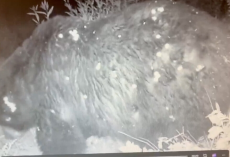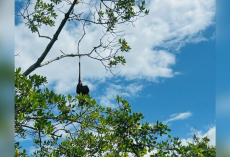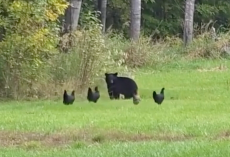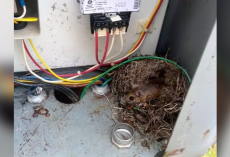From a distance, Boots looks like any other red fox — sleek copper fur, bright eyes, and a tail that swishes proudly as he runs.
But anyone who meets him quickly realizes there’s something very different about this little fox.
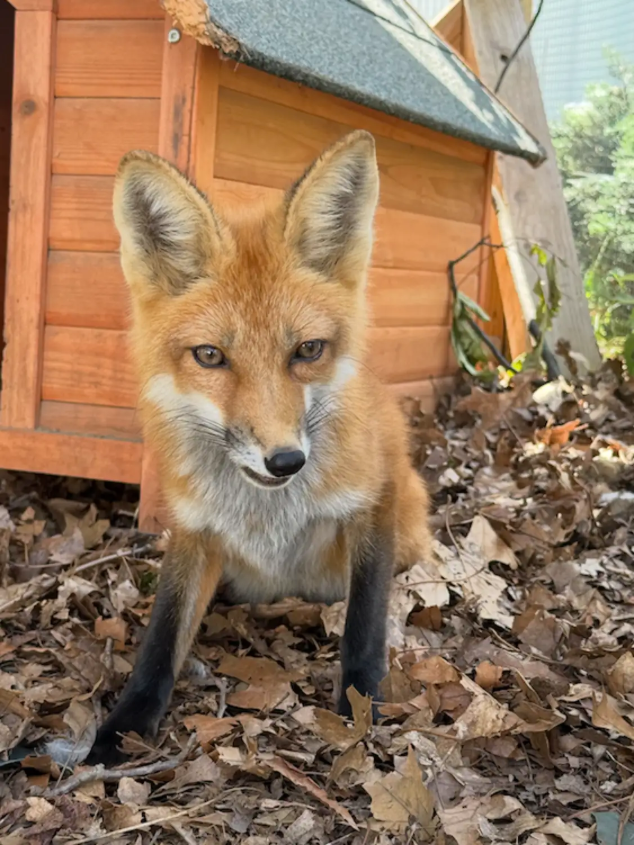
While most foxes are skittish and cautious, Boots only wants one thing: belly rubs.
Instead of digging dens or practicing his hunting skills, Boots prefers the company of humans at Newhouse Wildlife Rescue in Reading, Massachusetts. He greets his caretakers eagerly, rolls onto his back, and soaks up all the affection he can get.
But this unusually friendly behavior isn’t just a quirk — it’s part of why Boots will never be able to survive in the wild.
Back in March, a local animal control officer found the tiny, 6-week-old kit curled up in the cold rain — soaking wet, shivering, and alone. He brought him to Newhouse Wildlife Rescue, where founder Jane Newhouse immediately placed him in an incubator to warm up.
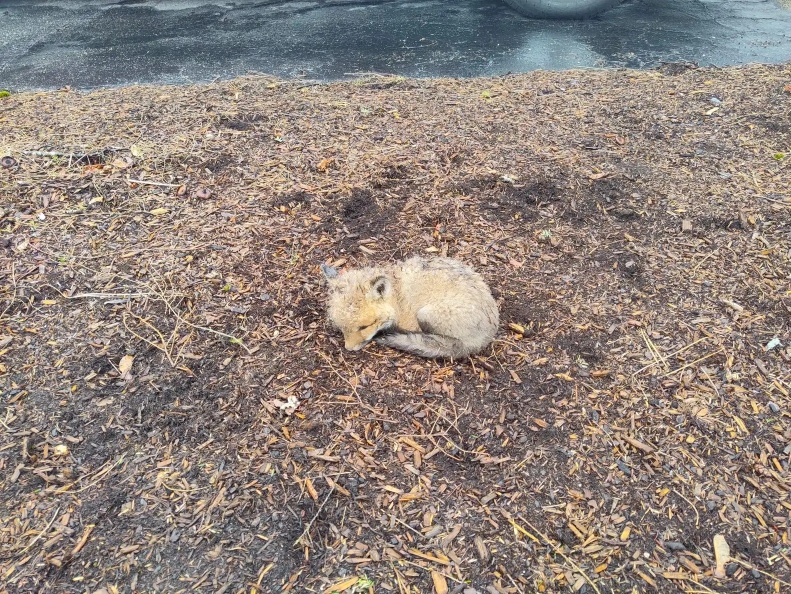
“He used to do a lot of crying and whining for his mom,” Newhouse told The Dodo. “He also had trouble walking.”
A vet soon discovered an abscess on Boots’ head, which they drained, along with treating a few minor infections. For a moment, it looked like the little fox would recover completely.
“We figured he was good,” Newhouse said. “Maybe it was just the abscess making him feel off.”
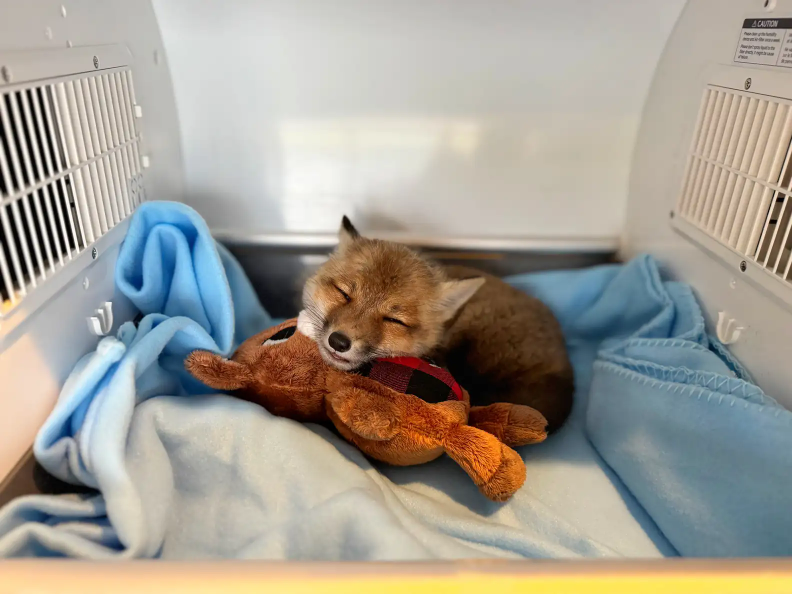
Boots joined a group of four other rescued fox kits, playing and socializing as he grew stronger. But soon, his caretakers noticed something strange — Boots wasn’t acting like the others.
“He was constantly trying to interact with us,” Newhouse said. “When we moved them to the outdoor enclosures, we really minimized contact, but he still wanted to be near people.”
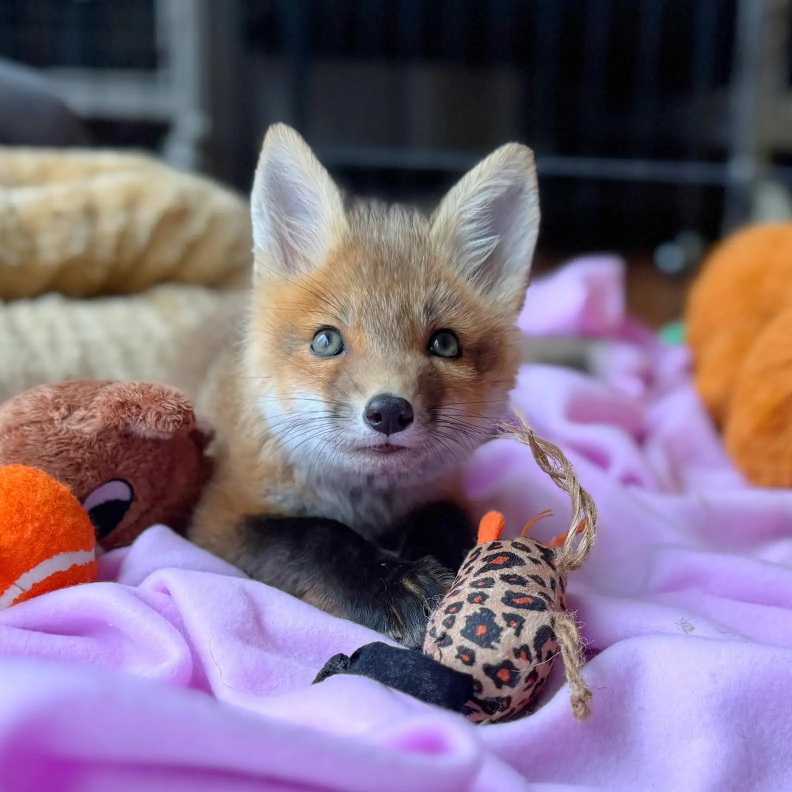
Then, Newhouse noticed Boots’ jaw sagging — a worrying sign. A CT scan revealed neurological damage likely caused by hydrocephalus, a condition where fluid builds up in the brain.
Parts of Boots’ brain hadn’t formed correctly, including the area that controls scent — an essential skill for foxes who rely on smell to hunt and survive.
That diagnosis explained everything: his friendliness, his clumsy movements, and why he never took to wild behaviors. It also meant one heartbreaking truth — Boots could never be released.
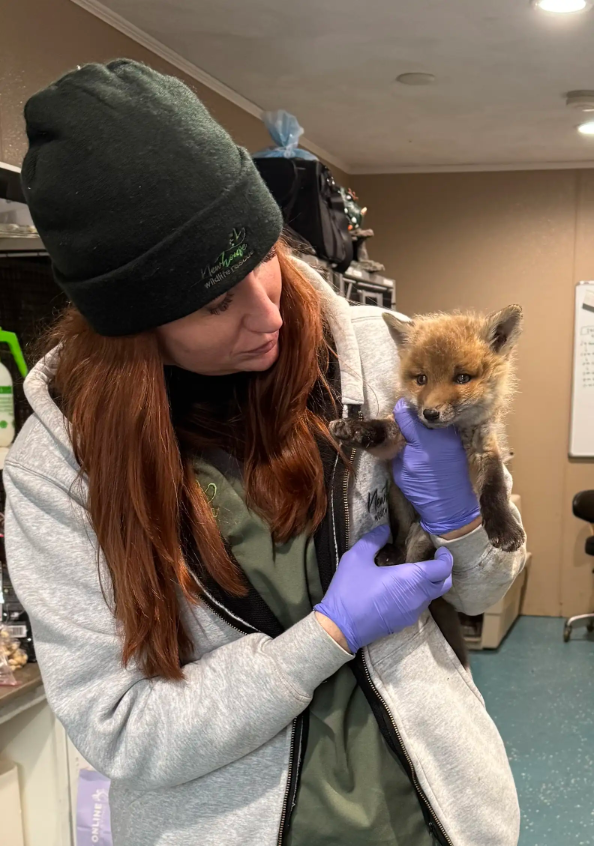
Still, his story didn’t end there.
Once his fox companions were set free, Newhouse decided Boots deserved what he’d wanted all along — love and attention.
“He’s in the enclosure by himself,” she said. “He’s fully vaccinated. We know he can’t be released, so he’s just lonely.”
The staff jumped at the chance to give Boots what he’d been craving. Soon, their shy little patient transformed into a joyful, affectionate fox who races to greet them every morning.
Now, when caretakers approach, Boots runs circles around them before flopping onto his back and demanding belly rubs.
“Of the 80 foxes we’ve cared for, Boots is the first we haven’t been able to release,” Newhouse said. “He’s truly an unusual case.”
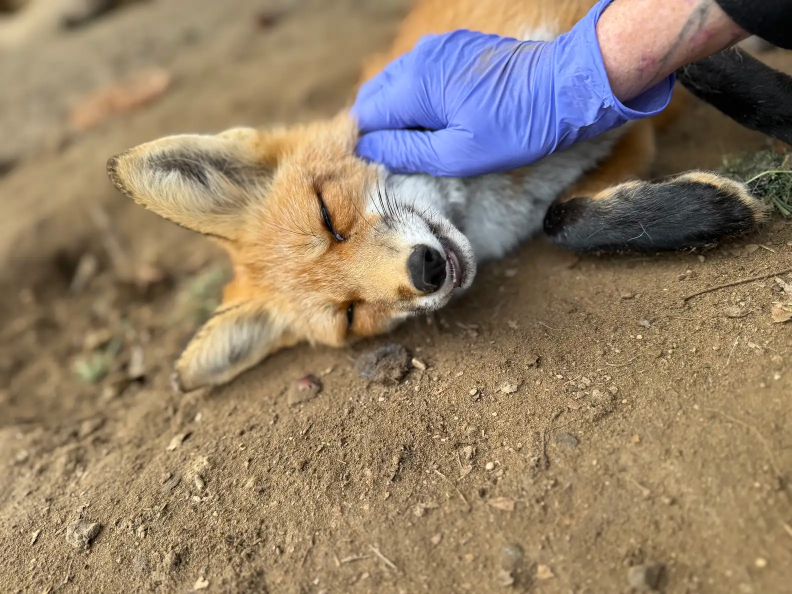
Though Boots can’t live in the wild, his caretakers say he has a wonderful quality of life. He plays, explores, and enjoys endless affection from his human friends.

As the seasons change, Newhouse expects more fox rescues to arrive — which means Boots will soon need a new home. She’s currently working with the Massachusetts Division of Fisheries and Wildlife to find a permanent sanctuary where Boots can live safely and happily.
At the time of writing, his future home hasn’t been decided. But one thing is certain:
“I’m gonna miss him,” Newhouse said softly.
If you’d like to support Newhouse Wildlife Rescue and help more animals like Boots, you can donate through their website.


